For two days, Zagreb was the center of the European automotive industry and a gathering place for thirty experts in the field of mobility, digitalization, and user experience, to jointly present and discuss common views on the future of the sector.
T1 Meetup organized by the Tokić Group has grown in recent years from an internal workshop where the Management transparently develops and shares business plans with employees, to an impressive, probably the largest regional conference on the automotive industry, mobility, and auto parts market. The latest edition, Mobility – where innovation meets tradition, was held on February 24 and 25 in three halls in Zagreb, and employees from Slovenia joined with questions through the stream; from the headquarters of Bartog in Mirna Peč, and the hall of the IEDC Bled School of Management.
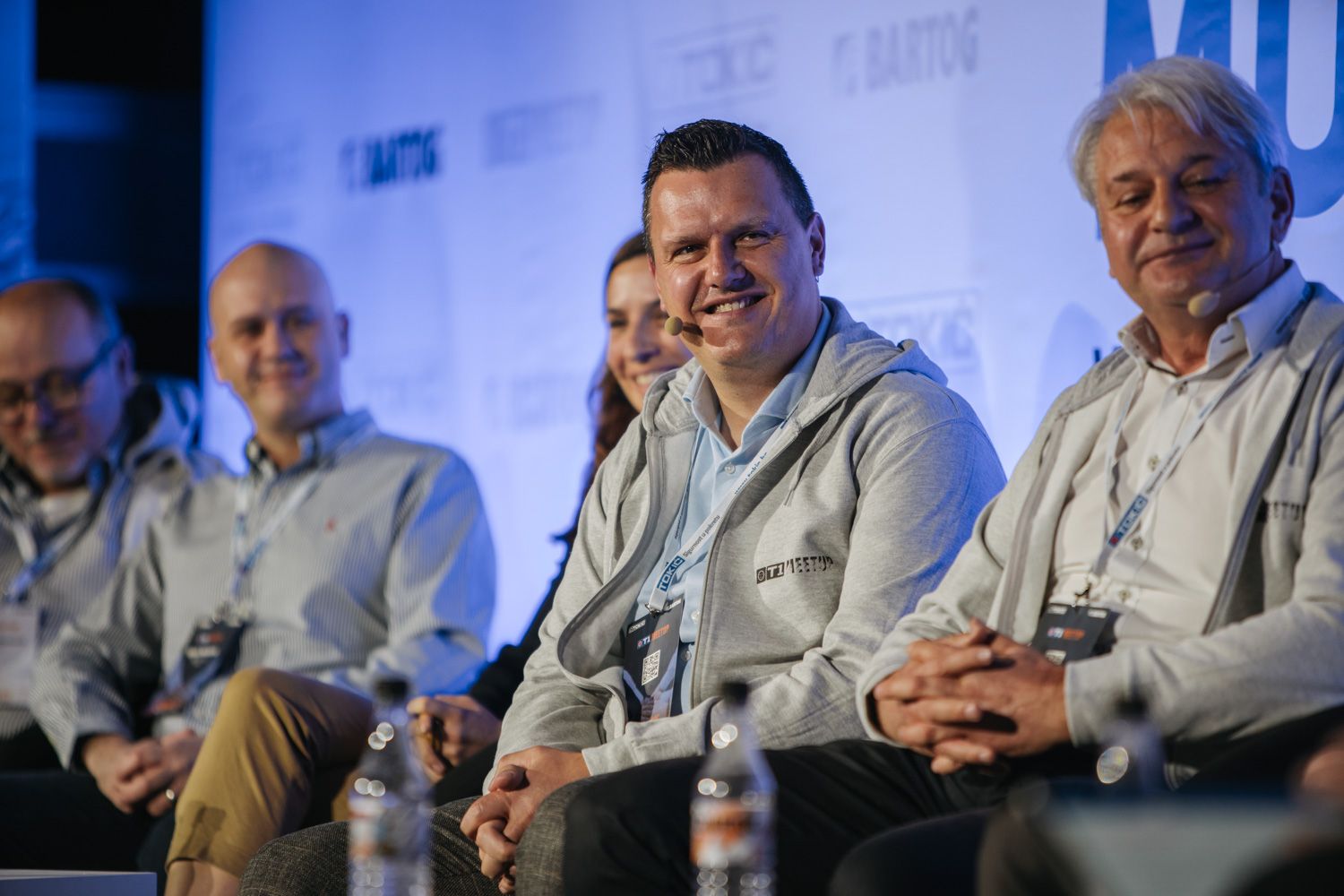
From the very beginning, it was stated that the car market is following global trends and that buying cars online is becoming more frequent, especially under the influence of the COVID pandemic. Hasmeet Kaur, a partner in the consulting firm Roland Berger, explained that Western countries are leading in this field, with which Antoine Weill, a partner in the consulting firm Simon-Kucher, agreed. Weill points out that the pandemic has changed some of the expected projections, and that private mobility has regained its importance concerning public transport and car-sharing. More than a third of customers are willing to pay up to 25 percent more for a sustainable solution with less environmental impact, according to a global survey of the auto industry’s largest consulting firm, Simon-Kucher.
“We already see how the value of vehicles and driving technology play a more important role in choosing a car than the price itself. Electrification and digitalization will have a significant impact on the market, with new sources of monetization such as blockchain and innovative pricing models playing a special role”, explained Antoine Weill of Simon-Kucher.
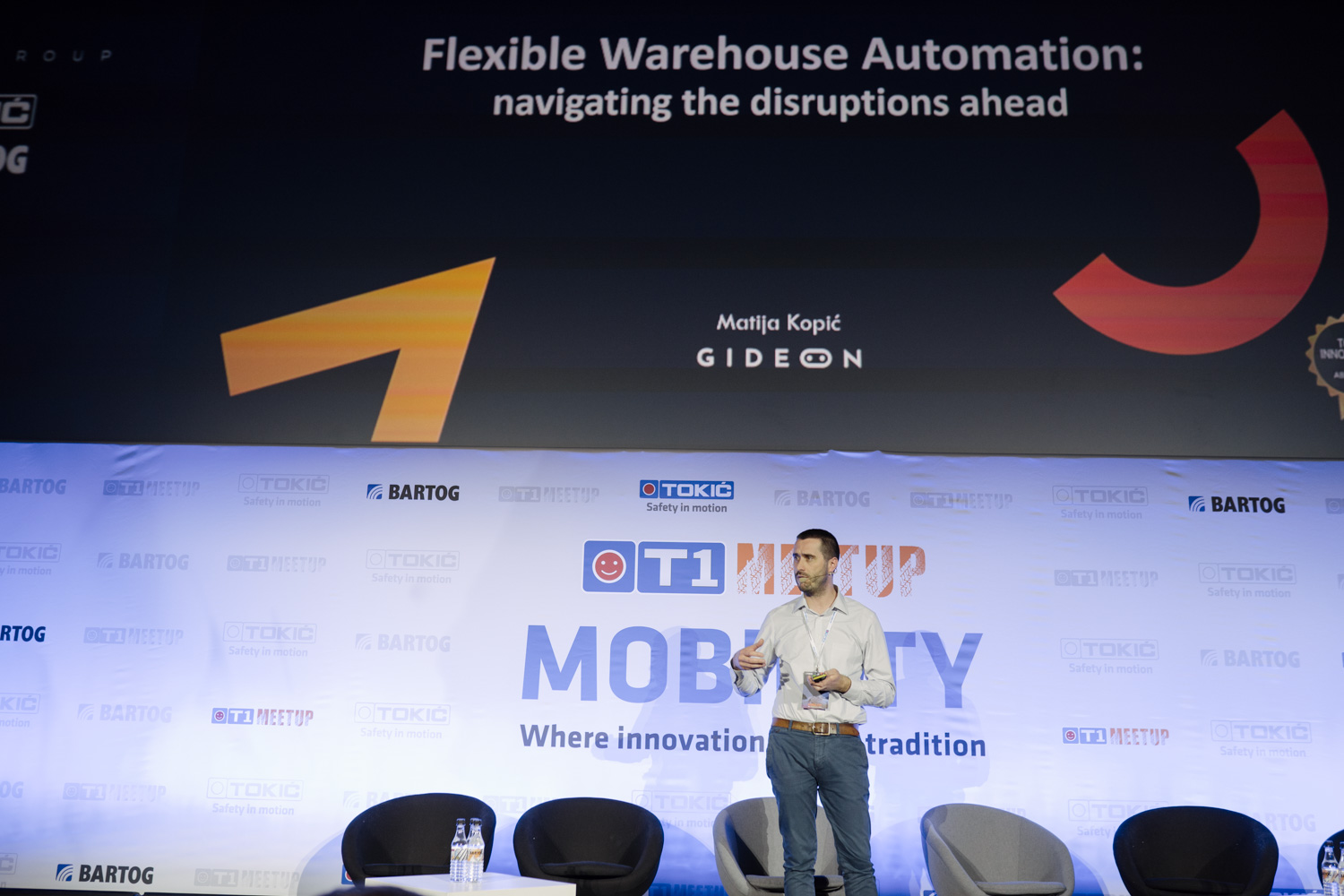
In a debate on the future of the auto and spare parts market, Bosch Regional Director Thomas Koch said that by 1930, around 19 percent of electrified vehicles can be expected to have lower maintenance costs of up to 20 percent compared to petrol and diesel. “But according to available estimates, the share of truly electric vehicles by then should be six percent”, Koch said.
The gathering group touched the subject of the younger generation of customers, who, according to most research, are becoming brand agnostics, ie are choosing products, including cars, according to the configurations they can get online. Therefore, the feeling of sitting in a car and test driving with them is not crucial, which opens the market to less famous manufacturers.
Warren Espinoza, CEO of ATR International, a European group of auto parts dealers, highlighted the importance of legislation when it comes to electric vehicles and the potential for remote diagnostics and repairs in the future. With the advancement of technology, the do-it-yourself vehicle repair model will become rarer, and customers will, according to Espinoza, choose professional service centers and workshops, provided they are equipped with the appropriate technology and have trained professionals.
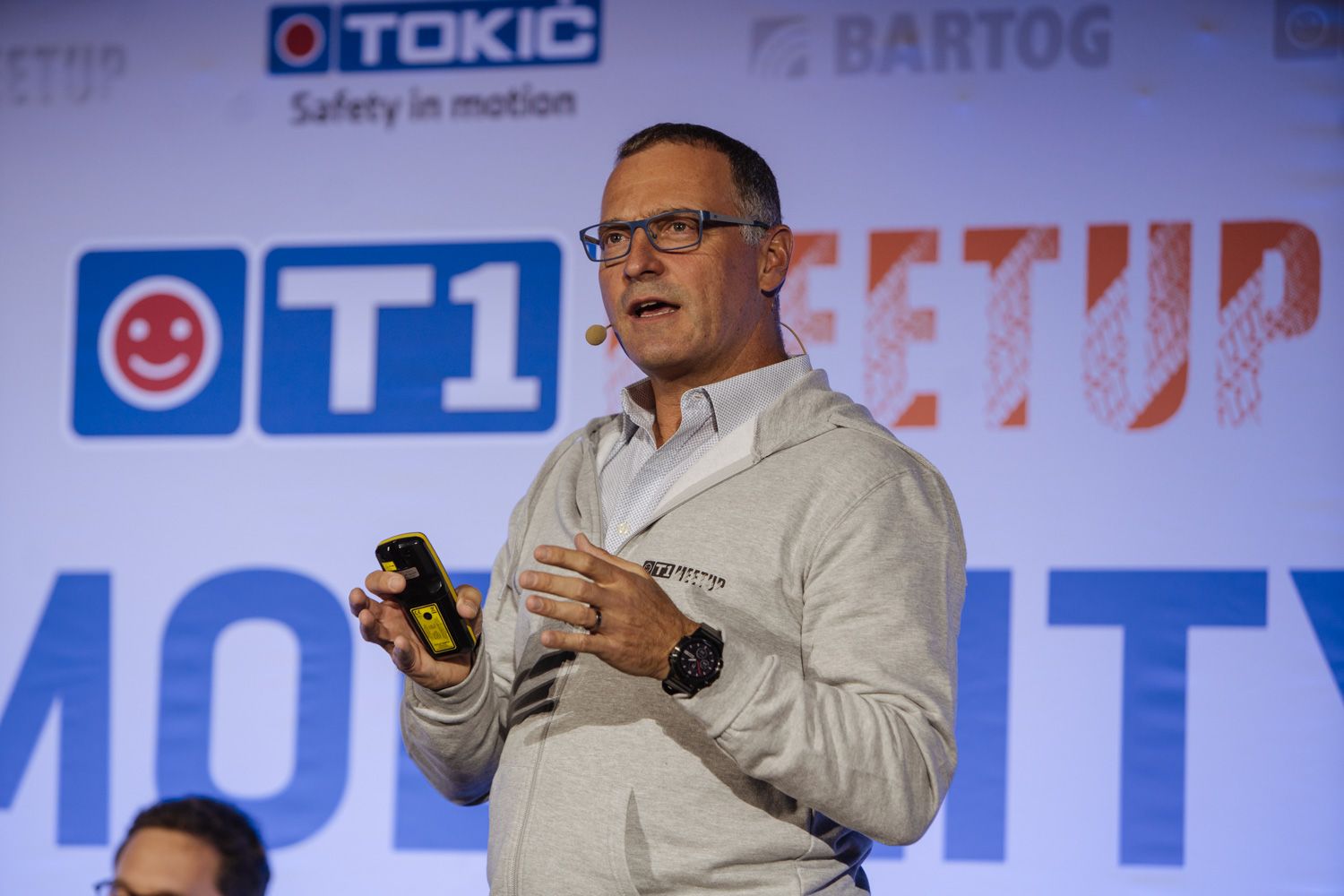
In addition to Board Members and employees of Tokić and Bartog, representatives of companies such as Toyota, Gideon Brothers, Schaeffer, Clarios (Varta), TotalEnergies, Mahle, Microsoft, Hrvatski Telekom, Lokad, Combis, and Algebra presented their experiences at the panel discussions. Everyone presented their perspective and they discussed megatrends, spare parts market, digitalization, the role of 5G technology in mobility and blockchain in logistics.
“We have gained direct insight into the latest knowledge and trends for the next ten years of the automotive industry, with an emphasis on the safety of all road users. From the design of the car and its performance, through the quality of spare parts, to the education of experts and harmonization of traffic legislation that must begin to monitor innovation and progress of available technologies – all these are topics we discussed with our guests in these two days. We all think we are ready for change, but whoever is the most honest, fastest, and capable, will win the market. I am proud that everyone showed us honor by coming and sharing their knowledge,” said the President of the Management Board of Tokić Ivan Gadže.
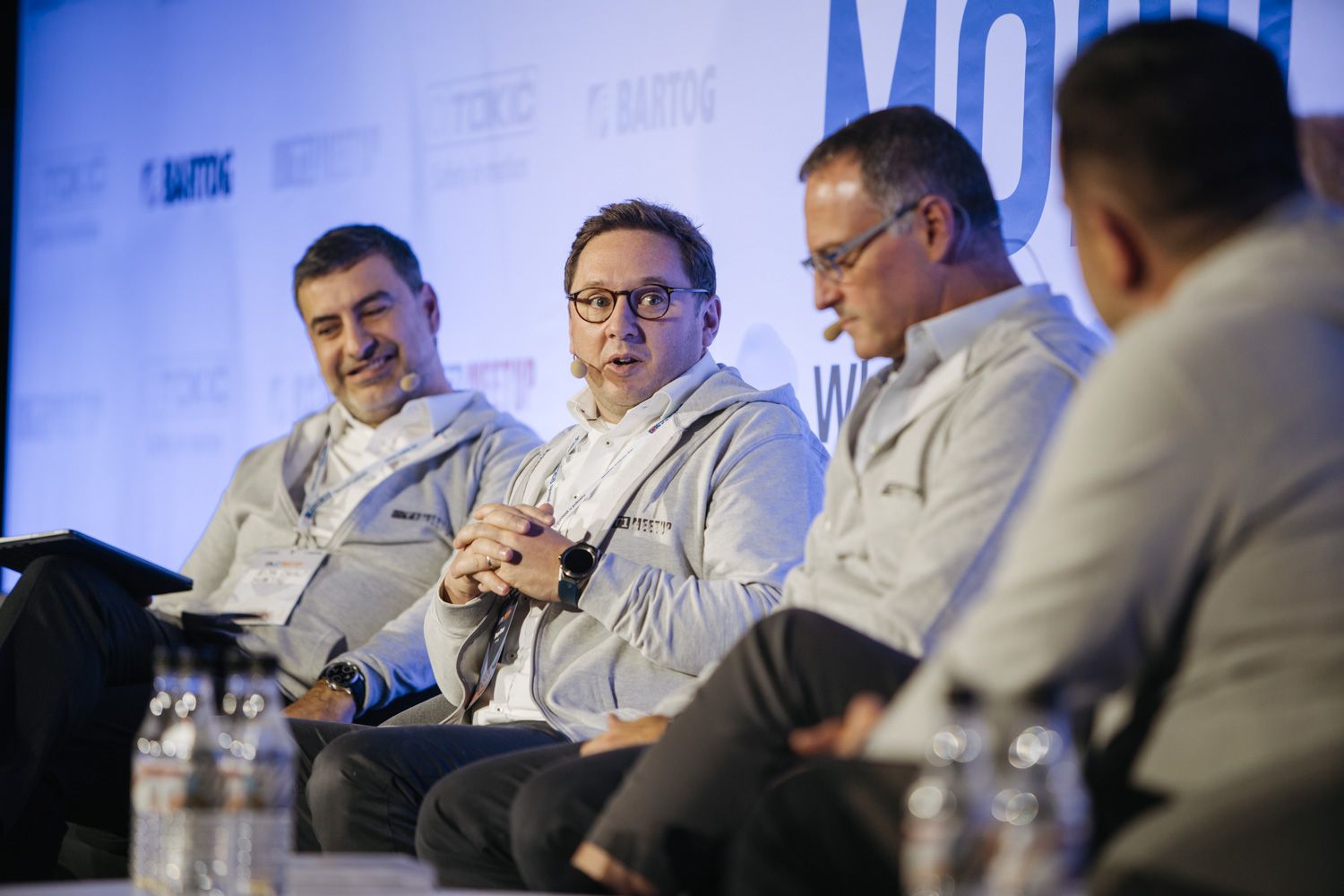
On the panels was also heard that the role of logistics and supply chain is one of the key factors and that it is especially significant that the last kilometer of delivery is always the most expensive, with a share of 41 percent of the total cost, said Guillermo Albaladejo Toyota in his presentation, opening the supply chain chapter.
On the second day of the presentation, the focus was on execution in business development, where it was shown how unpredictable and exciting the future of logistics is, and that each participant has a different approach to the idea of faster and more accurate inventory management. Fabian Hoehner from Lokad, pointing out the importance of accurate interpretation of the problem, accurately illustrated the path to full automation and artificial intelligence, through the need for in-depth learning in supply and demand correlated with delivery and distribution deadlines. “With the right metrics and analytics, we will become aware of all possible outcomes, so we will always be able to choose the best possible one”, he explained.
With the same goal of greater efficiency, the approach to automation of Gideon Brothers was charismatically presented by local Matija Kopić, reminding that 95 percent of warehouses still work in the “old school” way with experienced people and that he sees in them the biggest and fastest space for progress. He pointed out that these warehouses will work for years to come, and we should ask ourselves what can be automated in them in certain elements and processes and how we can solve burning problems with flexible robotics.
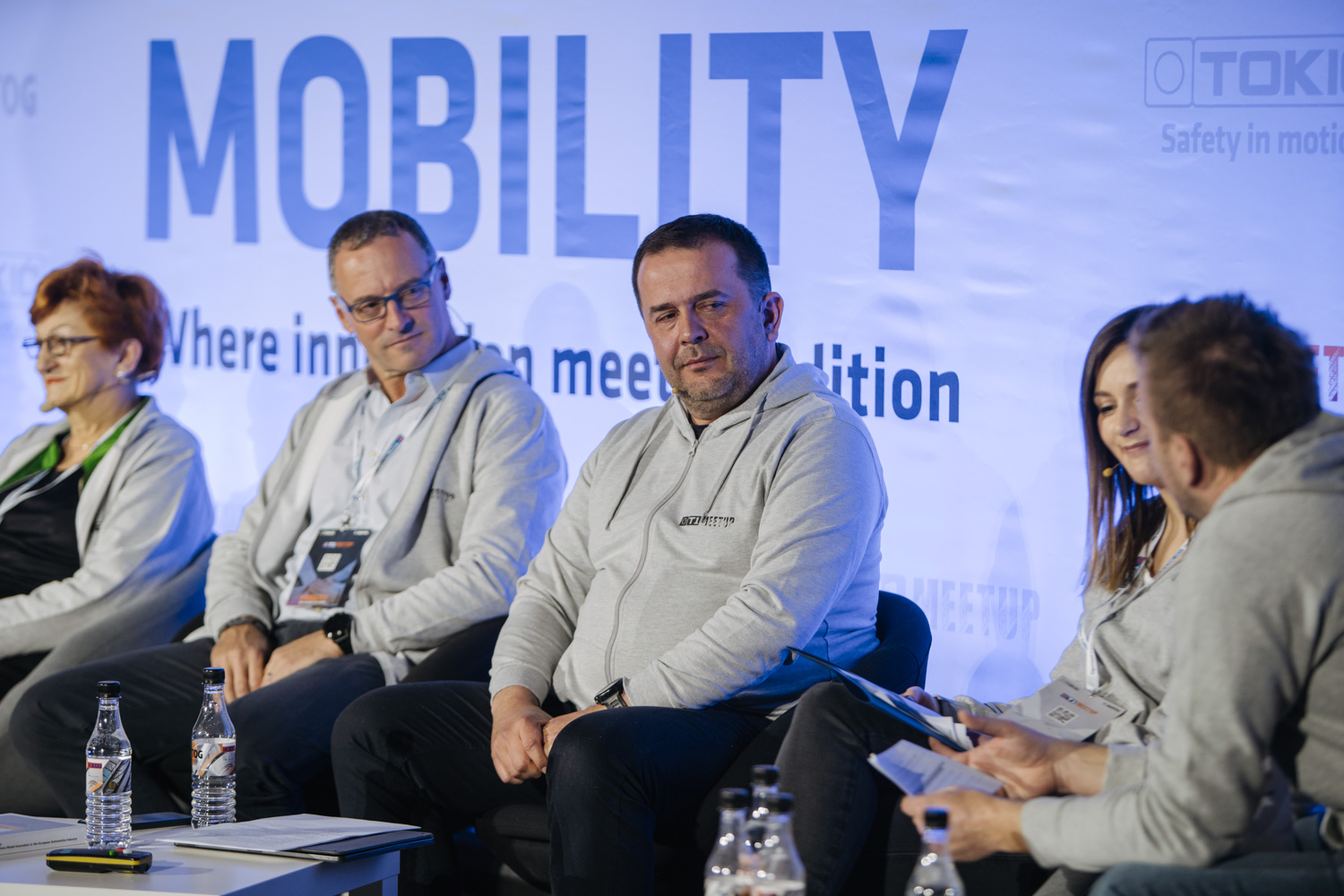
Therefore, the panelists agreed, change most often occurs on the margins of the business, where not all attention is focused, and where, when it comes to the automotive industry and mobility, technologically innovative processes are being created today. The conclusion of all 30 speakers is that the seemingly traditional automotive industry is developing rapidly, but that it is necessary to listen to customers whose priorities and interests are significantly different today than 10 or 20 years ago and be open to new technologies that improve user experience.
For more, make sure to check out our dedicated business section.









